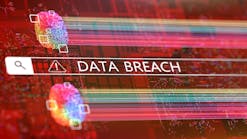Nov. 7--UNIVERSITY PARK -- It was an agency perhaps best known for meticulous, persistent investigations.
But those investigations, at least before 2001, often probed misdeeds only after they happened.
The terrorist attacks of Sept. 11 compelled the FBI to shift its institutional mentality and expertise, Director Robert Mueller told a Penn State audience on Tuesday.
The FBI must "understand that our mindset has to be to prevent the attack," Mueller said in an hourlong appearance at Beaver Stadium.
Speaking primarily about Internet-based threats, Mueller drew a crowd of more than 500 university faculty and staff members to the Mount Nittany Club.
His appearance was part of the Penn State Forum, a lunchtime speaker series put on by the Faculty/Staff Club.
"The simple truth is, we do not protect cyberspace to the same degree we protect our physical space," Mueller said. "We have, in large part, left the doors open to our business practices, our sensitive data and our intellectual property.
"The espionage game once pitted spy versus spy, country against country," he went on. "Today our adversaries sit on fiber-optic cables and Wi-Fi networks, invisible and undetected."
Mueller, 63, underscored the growing centrality of the Internet in commerce and day-to-day life around the world.
He said a cyber attack "could impact our nation as much as other terrorist acts have in the past. Indeed, the intersection between cyber crime and terrorism is becoming increasingly evident."
Success in securing the electronic world, and defeating cyber-terrorists, depends on government alliances with the private sector and academia, Mueller said.
Already, Penn State is considered a leader in defense-related research, and its new major in security and risk analysis will probably produce new workers for the FBI, Mueller said.
University President Graham Spanier has for two years led the National Security Higher Education Advisory Board, designed as a forum where academic leaders can share "concerns and their collective expertise," Mueller said.
He fielded about 20 questions from the audience after finishing his prepared remarks.
Mueller used a teleprompter -- a rare item at Forum events -- and later told reporters that he used his visit also as a recruiting opportunity.
The FBI director since September 2001, he received a warm welcome in the Mount Nittany Club, including from moderator Katie O'Toole.
"Now that we finally have you, we can take you off our most-wanted list," O'Toole said.
Spanier introduced Mueller as an exceptional leader who's able to transcend partisan politics.
A substantial federal security detail accompanied Mueller at the stadium. So did his sense of humor, which he flashed a few times during his talk.
Asked whether the FBI has taken the offensive by developing viruses and computer worms of its own, Mueller declined to get into specifics.
"You can assume," he said with a smile, "that we're not just standing here."

